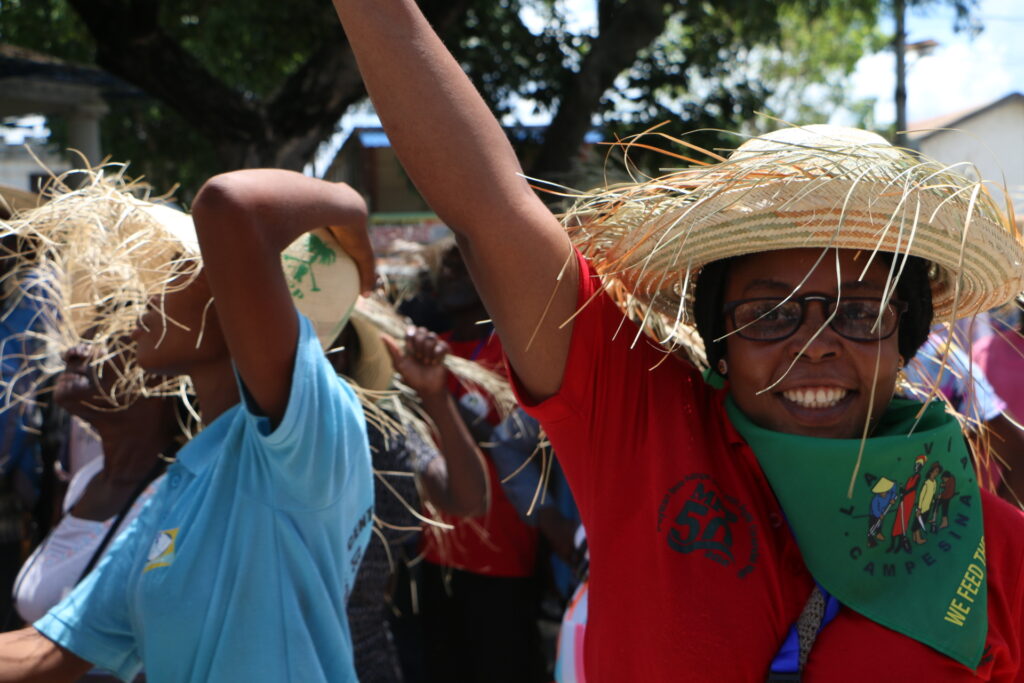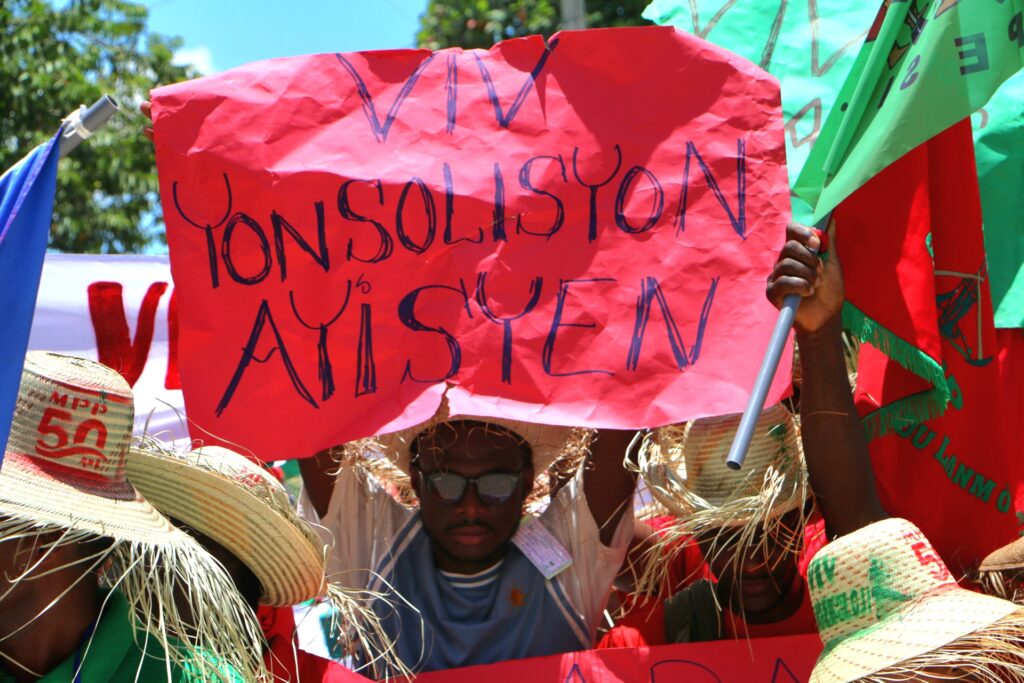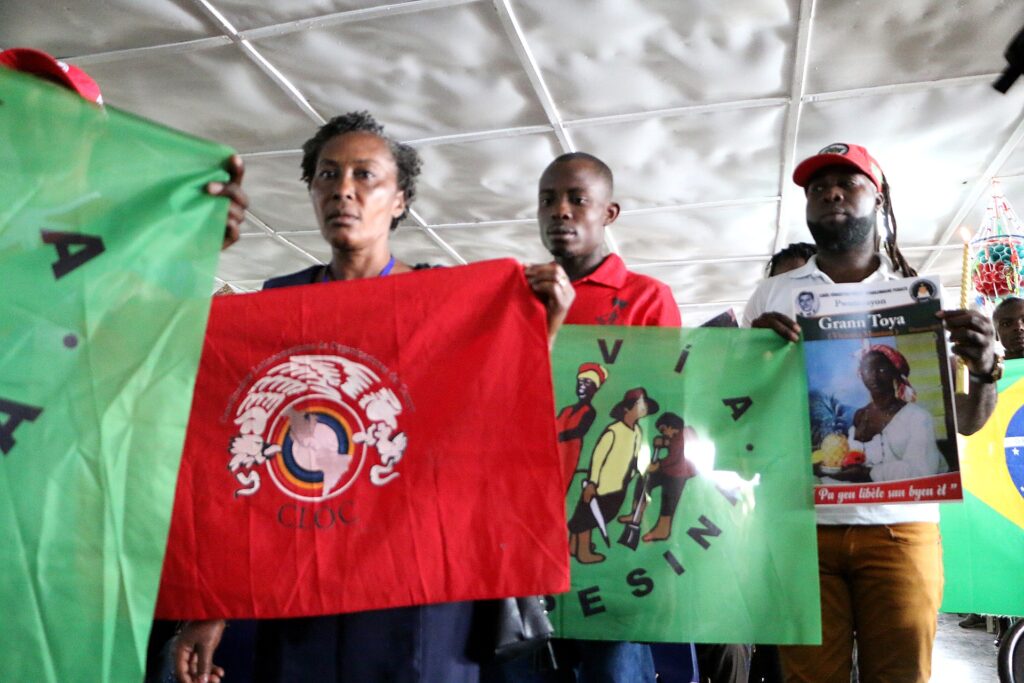We, La Via Campesina, the Latin American Coordination of Rural Organizations, Unión Comunera (Venezuela), the Landless Workers’ Movement (MST, Brazil), Southern Region Coffee Growers Federation (FEDECARE, Domican Republic), Confédération Paysanne (France), and Casa Tecmilco (Mexico), as supportive social movements with the people of Haiti, are gathered at the congress of Mouvman Peyizan Papay (MPP), in the context of celebrating the 50 years of this peasant organization.
We hold a strong conviction that the solutions to the crises imposed upon Haiti must emanate from the Haitian people and their social movements. We uphold the sovereignty of the Haitian people and hold deep admiration for the Haitian peasant struggle, which has emerged as the driving force of resistance and change.

In 2019, the Patriotic Forum was held in Haiti, from which emerged the August 30 Agreement (also known as the Montana Agreement). This accord enabled the country’s organizations to construct a proposal for a democratic, participatory, and people-centered transition. This agreement outlines a specific agenda to address the current crisis: “A Haitian Solution for the Haitian Crisis,” free from the intrusion of corrupt and imperialist powers responsible for the social, political, and economic violence.
It is noteworthy that Haiti was the first nation in Latin America to achieve independence and contribute to the liberation of colonized peoples. It was also the first to abolish slavery and declare equality for all humans. The subsequent collective struggles demonstrated the Haitian people’s tenacity in the face of adversity. The current achievements in peasant struggles, such as the continuation of grassroots work through organizations like MPP, Tet Kolé, Mouvman Peyizan Nasyonal Papay (MPNKP), among others, technical and political education, global peasant alliances, and women’s empowerment, showcase the intrinsic capacities of the people and their historical achievements.

The state’s anti-peasant policy, insecurity, violence against women, land grabbing, lack of access to essential social services, and international interference bolstered by fascist anti-people governments constitute the challenges identified by the attending peasant organizations at the congress. These same organizations underscore the need for comprehensive agrarian reform, an agricultural plan tailored to the Haitian reality, peasant and popular feminism, peasant, indigenous, and Black agroecology, food sovereignty, peasant rights, internationalist solidarity, and people’s self-determination to overcome political, democratic, social, economic, and environmental crises.

We vehemently reject the threats of military interventions from the “core group”, composed of the Ambassadors of the European Union, the United States of America, France, Spain, Brazil, Germany, as well as the UN office in Haiti (BINUH). Previous invasions further deteriorated the living conditions of the Haitian people. We categorically condemn the political exploitation of the crisis for the benefit of capitalist interests. We commit to continuing our support for the Haitian people in their just demands.
Long live the Haitian people and their peasant organizations!

